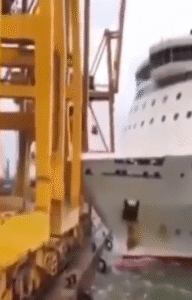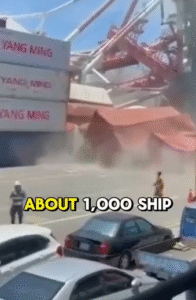
The Causes and Consequences of Port Accidents Involving the World’s Largest Supertankers
Supertankers—massive vessels designed to transport millions of barrels of crude oil or other bulk liquids across oceans—are engineering marvels. Yet when these giants of the sea encounter trouble in ports, the consequences can be catastrophic. Port accidents involving supertankers are rare but devastating events that often stem from a mix of human error, mechanical failure, environmental conditions, and infrastructure limitations. When things go wrong, the impact ripples far beyond the port.
Causes of Supertanker Port Accidents
-
Navigational Challenges: The sheer size of supertankers, some stretching over 1,000 feet long and weighing more than 300,000 tons when fully loaded, makes maneuvering them in tight port spaces extremely difficult. These vessels require deep, wide channels and a lot of space to turn or stop. Even with tugboat assistance, a small miscalculation can cause collisions with docks, other ships, or underwater obstacles.
-
Human Error: Despite advances in navigation technology, human error remains one of the leading causes of maritime accidents. Miscommunication between the port pilot and the ship’s crew, fatigue, or lapses in judgment can result in disastrous consequences, especially when precision and timing are crucial during docking operations.
-
Mechanical Failures: Failures in steering systems, engine problems, or malfunctioning thrusters can severely impair a supertanker’s ability to maneuver. Even a brief power outage at the wrong moment can send a tanker veering off course.
-
Adverse Weather: Strong winds, heavy rain, fog, or rough seas can make docking a supertanker extremely risky. High winds can push these massive vessels off course, and poor visibility can lead to misjudgments in positioning.
-
Port Infrastructure Limitations: Not all ports are equipped to handle the largest supertankers, which require deep-water berths, strong mooring systems, and high-capacity tugboats. Inadequate facilities increase the risk of accidents during loading, unloading, or docking procedures.
Consequences of Supertanker Port Accidents
-
Environmental Disasters: One of the most feared outcomes is an oil spill. A rupture in a supertanker’s hull can release millions of gallons of oil into surrounding waters, devastating marine ecosystems, killing wildlife, and polluting coastlines. The cleanup process is long, expensive, and sometimes only partially effective.
-
Economic Impact: Port accidents can halt operations for days or even weeks, disrupting global supply chains. Damaged port facilities or sunken vessels can block shipping lanes, leading to delays in oil deliveries, rising fuel prices, and financial losses for shipping companies and insurers.
-
Loss of Life and Property: While rare, port accidents can lead to fatalities among crew members or dockworkers. Fires or explosions resulting from collisions or cargo leaks pose further risks.
-
Reputation and Legal Consequences: Shipping companies involved in accidents often face lawsuits, regulatory penalties, and reputational damage. Ports may be forced to upgrade infrastructure or change procedures, increasing operational costs.

